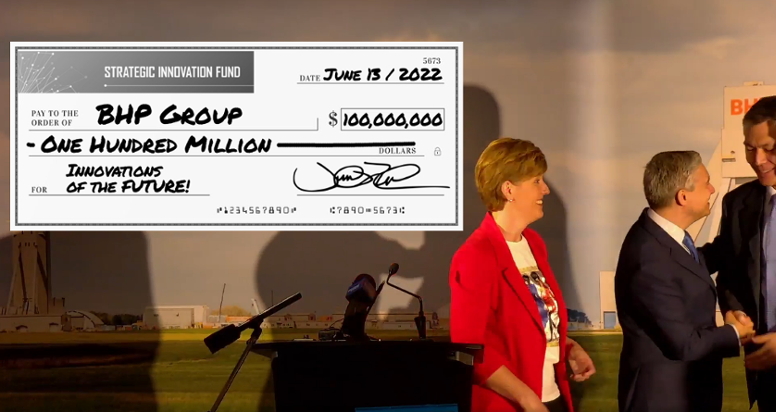BHP Group (NYSE: BHP) and union leaders representing workers at the Escondida mine in Chile reached a preliminary wage agreement on Friday, bringing an end to a brief but impactful strike that had raised concerns about disruptions in the supply of one of the world’s most essential industrial metals. The agreement, reached after intense negotiations, paves the way for the resumption of full operations at the world’s largest copper mine.
The dispute began when Sindicato Nro. 1 (Union No. 1), which represents around 2,400 workers at Escondida (61% of the workforce), initiated a strike on Tuesday after negotiations over wages and bonuses failed to yield an agreement. A central sticking point was the union’s demand for a 1% share of shareholder dividends, which would amount to approximately $35,000 per worker. BHP had previously offered a bonus of $28,900, a proposal that the workers rejected, leading to the strike.
However, after several days of on-again, off-again negotiations, both parties reached a consensus on a new collective bargaining contract. The union agreed to temporarily lift the strike at 8 a.m. local time on Friday to present the new proposal to its members.
BHP confirmed the agreement in a statement, saying, “BHP and Union No. 1 have come to an agreement for a collective contract proposal. Along with that, it was agreed to suspend the strike underway as of this Friday, Aug. 16, at 8 a.m.”
The new deal, if ratified by the union members, is expected to be signed by Sunday. The terms of the agreement have not been fully disclosed, but it is understood that the final proposal bridges the gap between the company’s initial offer and the union’s demands, potentially including a revised bonus structure and other benefits.
The news of the preliminary agreement had an immediate impact on the copper market. On Friday morning, copper for delivery in September fell 1.2% from Thursday’s settlement, reaching $4.10 per pound ($9,020 per tonne) on the Comex market in New York.
“Strikes usually don’t tend to be long-lasting in Chile, and so the market may have been reluctant to react to it too much in the early stages,” said Michael Widmer, head of metals research at Bank of America, in an interview with Bloomberg. He added that the market’s focus remains on the demand side, particularly given the current global economic uncertainties.
The swift resolution of this strike contrasts sharply with the last major labor dispute at Escondida. In 2017, the mine experienced a 44-day strike, the longest in Chilean private-sector mining history. That stoppage severely impacted production, with Escondida failing to produce over 120,000 tonnes of copper, and it contributed to a significant spike in global copper prices.
Escondida, located in the Atacama Desert in northern Chile, is a cornerstone of the global copper industry. The mine accounts for approximately 5% of the world’s mined copper, producing over 1 million metric tonnes of copper annually.
According to the Chilean Copper Commission, Escondida contributed 23.7% of Chile’s copper production in the first half of 2024, a period during which the country produced 2.6 million tonnes of the red metal.
Information for this story was found via Bloomberg, Mining.com, and the sources and companies mentioned. The author has no securities or affiliations related to the organizations discussed. Not a recommendation to buy or sell. Always do additional research and consult a professional before purchasing a security. The author holds no licenses.









